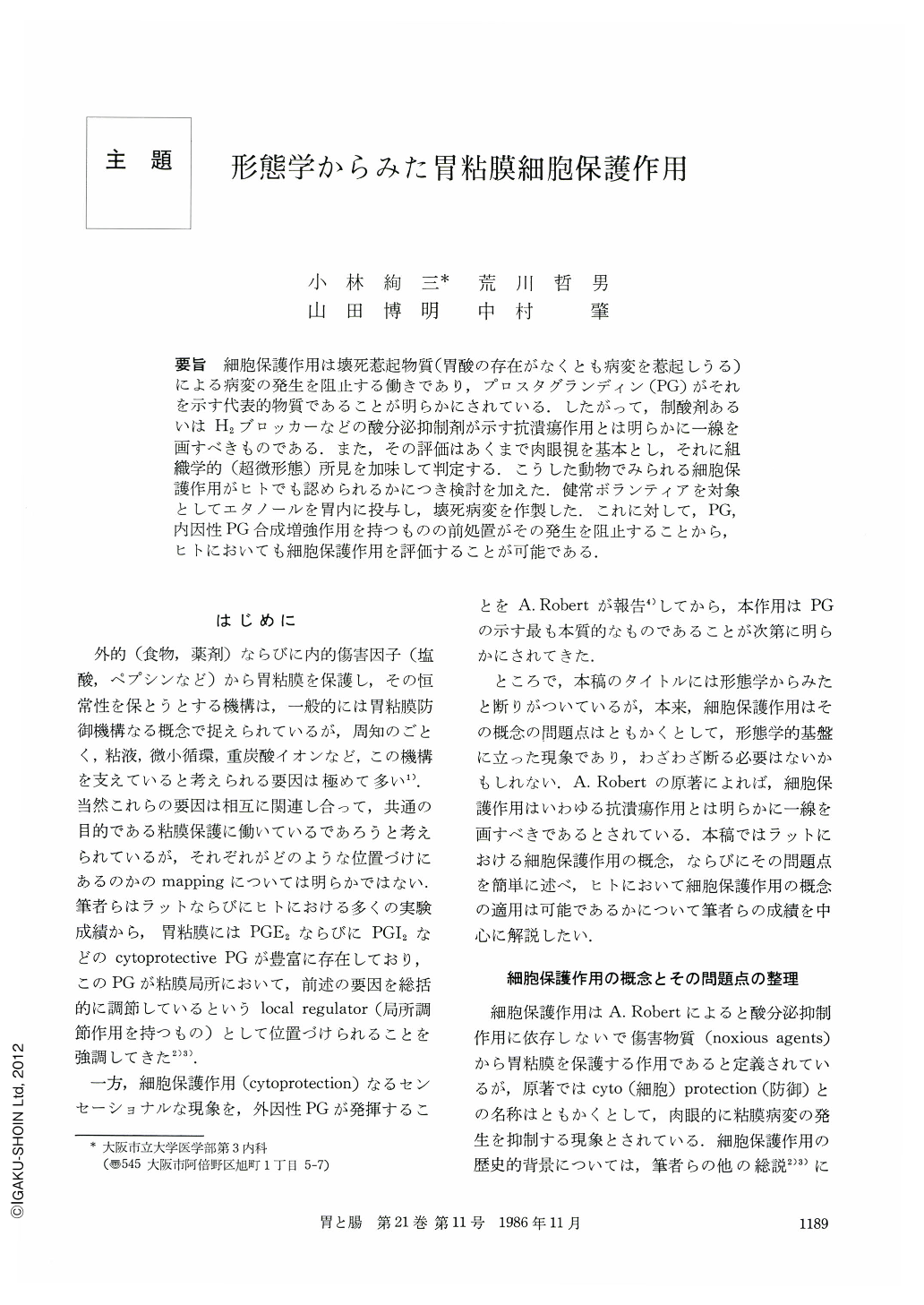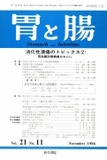Japanese
English
- 有料閲覧
- Abstract 文献概要
- 1ページ目 Look Inside
要旨 細胞保護作用は壊死惹起物質(胃酸の存在がなくとも病変を惹起しうる)による病変の発生を阻止する働きであり,プロスタグランディン(PG)がそれを示す代表的物質であることが明らかにされている.したがって,制酸剤あるいはH2ブロッカーなどの酸分泌抑制剤が示す抗潰瘍作用とは明らかに一線を画すべきものである.また,その評価はあくまで肉眼視を基本とし,それに組織学的(超微形態)所見を加味して判定する.こうした動物でみられる細胞保護作用がヒトでも認められるかにつき検討を加えた.健常ボランティアを対象としてエタノールを胃内に投与し,壊死病変を作製した.これに対して,PG,内因性PG合成増強作用を持つものの前処置がその発生を阻止することから,ヒトにおいても細胞保護作用を評価することが可能である.
It is well known that cytoprotection is regarded as an action for the prevention of gastric mucosal lesions brought about by necrotizing agents capable of inducing lesions even if gastric acid is absent. Among such agents, prostaglandin (PG) is a most important substance.
Cytoprotection should be clearly distinguished from antiulcer action in which antacid or H2 Mocker antagonists are evident. Evaluation of cytoprotection should be defined on the basis of macroscopic findings in addition to histological findings available through scanning electron-microscopy.
A total of 24 healthy adult men aged 19-37 years, were enrolled in an at-random, placebo-controlled, parallel-group study. In these subjects, solutions of 70% ethanol (20 ml) were instilled into the posterior wall side of the antral region. OU-1308 and teprenone prevent to a great extent, ethanol induced gastric lesions. From these results, it seems that the phenomenon of cytoprotection should be recognized not only in animal models but also in humans.

Copyright © 1986, Igaku-Shoin Ltd. All rights reserved.


